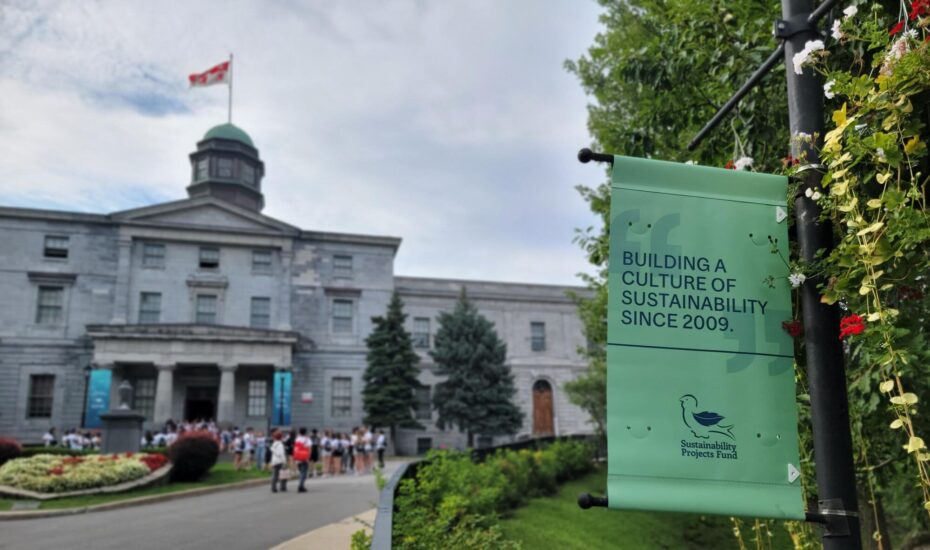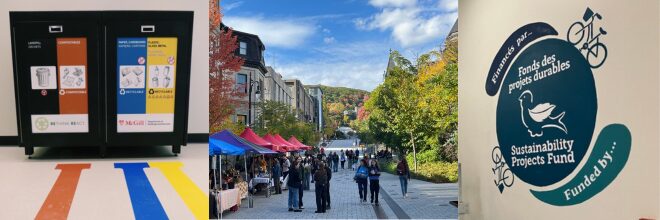
Have you ever used one of McGill’s water-bottle refill stations? Or visited the Farmers Market, used a compost bin, spotted a McGill-owned electric vehicle, or parked or repaired your bicycle?
Each of these campus initiatives was supported by the Sustainability Projects Fund (SPF), celebrating its 15th anniversary.
The SPF, founded by students in 2009, is the largest fund of its kind in Canada, allocating $12 million to more than 370 environmental projects so far.
These include the McGill Feeding McGill project, which provides fresh produce from Macdonald Campus to McGill dining halls; Campus Crops, which grows food on the downtown campus; and the Reusable Menstrual Product Initiative.
“The Sustainability Project Fund has been an unequivocal success,” said Shona Watt, Associate Director of Operations and Engagement at the Office of Sustainability. “The initiatives it has funded over the past 15 years have transformed our campuses for the better.”

Projects big and small
Anyone at McGill – students, staff or faculty – can submit an SPF project application. Projects approved by a Governance Council composed of staff and students receive funding generated by student fees and the University.
More than half of SPF projects have been led by students, providing them with the opportunity to develop and manage their own initiatives, learn about sustainability, collaborate with others and grow personally and professionally.
“The Sustainability Projects Fund is a truly unique way to place student and staff collaboration at the forefront of how sustainability projects are carried out, empowering each of us to bring positive change to our own studying and work environments” said Peter Garber, Sustainability Officer. “The SPF has enabled thousands of students to put knowledge gained in classrooms into real-world practice, creating connections within the McGill community and beyond along the way.”
The SPF is more popular than ever; the past two years have generated a record number of applications, thanks to its volunteer ambassadors.
No idea is too big or too small; the budget to subsidize the electrification of McGill’s vehicles is over $250,000, while nearly 100 Tiny Stream Projects have been approved, each with a budget of less than $300.
“All these projects through the years have shown us what our collective efforts can do to improve our immediate studying and working environment,” said Shivani Salunke, who represents the Post-Graduate Students’ Society on the SPF Governance Council.
“At the same time these projects, as well as the availability of funds through the SPF, should act as inspiration for us to continue taking steps towards a sustainable future.”
Celebrating 15 years of sustainable impact
To mark the milestone, the Office of Sustainability is hosting a 15th anniversary celebration showcasing the SPF’s funded projects; all McGill community members are welcome.
“We are excited to celebrate this achievement with the many community members who have made the SPF what it is today,” Watt said.
In the meantime, there are yet more projects in the works, such as the launching of an oyster mushroom farm by members of the McGill Fungi Society; creating a culture of sustainability in the Faculty of Dental Medicine and Oral Health Sciences; and the hosting of the Biodiversity Festival Sept. 24.
The 15-year anniversary of the Sustainability Projects Fund will be celebrated Tuesday, September 17 from 4 – 6 p.m. in the Bronfman Building on the second floor. No registration is required.
